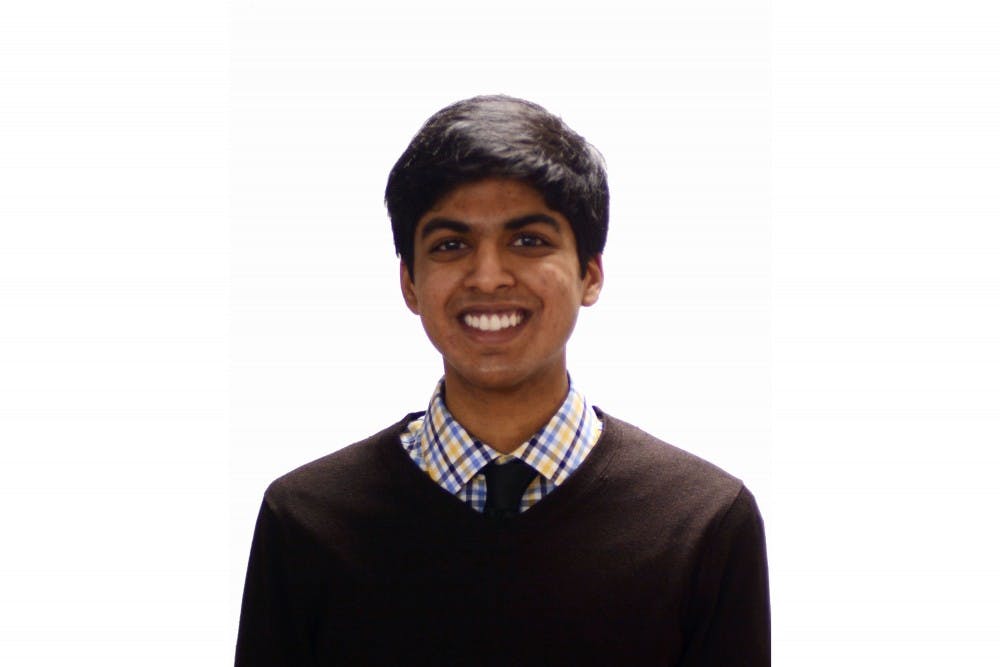Last month, ABC became the first network in history to launch a TV show starring an actress of Indian origin, Priyanka Chopra.
“Quantico” is attempting to change the landscape of media representation of South Asian women. While current portrayals may range from exotic to whitewashed to nerdy, the characters are invariably one-dimensional, lacking the substance and depth necessary to bring their complex and colorful heritages to life. Simply put, the few female South Asian characters in media aren’t incredibly real or relatable.
This lack of role models on the big screen can generally be applied to the professional field as well. Given the combined effects of the glass and bamboo ceiling, there is a perceptible lack of South Asian women in executive positions in business. There is also a lack of South Asian women (and men) in nontraditional fields such as sports or fashion. This absence of role models deters some South Asian women from pursuing certain fields.
“Even though my family didn’t influence my career choice, not seeing a successful Indian-American woman as a teacher, model, writer, singer, actress, sports star and et cetera made me think that I could never be in those fields even if I wanted to,” Wharton junior Ashna Bhatia said.
Multiple South Asian female students mentioned difficulty in navigating the work force, being one of the few South Asian women in a certain field. It is “scary” to pursue a path where no other South Asian women have “succeeded.” With parental expectations, many South Asian women are pressured away from being a trailblazer or feel as though they need to focus on domestic responsibilities in lieu of a promotion.
As Penn students, we care a lot about careers. On-campus recruiting seems to be on everyone’s mind as lunch time conversations turn to resume formatting or company culture and dinner plans are cancelled to attend info sessions. Additionally, our high expectations for ourselves mean that we have narrow definitions of success. Most South Asian women interviewed for the article were only able to identify four or five women they considered “successful” in “nontraditional” career paths.
Shana*, another junior, said that she felt academically demotivated last year because of her desire to go into the white male-dominated entertainment industry.
“I didn’t see the point in going to classes when I didn’t think it was possible for South Asian women to be successful in the industry I wanted to go into,” she said.
Though issues in the South Asian community are overlooked due to the model minority myth, there is a very real and urgent need to address mental health concerns. According to the Journal of Psychiatric Services, South Asian women have higher suicide rates than South Asian men and the average American. While Penn has recently placed a new emphasis on mental health, racial and gender-based factors need more understanding.
Therapy and mental illness are viewed differently in a South Asian cultural context than they are viewed in the United States, leading to a generational gap between parents and children. South Asian women are hesitant or unable to to seek help because their parents or their own insecurities stand in the way.
College sophomore Meghana Nallajerla highlights an important flaw in the current state of resources that seek to address mental health: “Intersectionality is so crucial and that cannot be emphasized enough, because South Asian women experience life as South Asians and as women. And it’s not as if those two issues can be separated out.”
What makes mental health unique for South Asian women on campus is a combination of their layers of identity: As Penn students, as women, as South Asians, there are resources that are sensitive to each one of those identities, but few that can bring them together.
Multiple students described a culture of image and perfection at home that mirrored one they experience at Penn. “Image is a huge part of South Asian culture. To admit to weakness, or to admit to being anything less than perfect, is shameful,” College junior Ria Desai said. This culture creates a dynamic where people place their desire to be viewed as high-achieving by others above their own health.
College senior Sheila Shankar remains optimistic. “I realized that there are so many different paths and creative routes that one can pursue ... [W]e have to persevere.”
*name change on request for privacy
RAVI JAIN is a College junior from Syosset, NY, studying economics. His email address is jainravi@sas.upenn.edu. “Tall, Skinny, Mocha” appears every other Tuesday.
SONIA SIDHU is a College junior from Saratoga, Calif., studying psychology. Her email address is sidhus@sas.upenn.edu.



